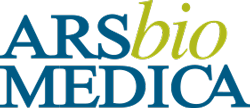The Genetics Laboratory of Arsbiomedica Clinic, equipped with state-of-the-art equipment and highly specialized personnel, performs various types of genetic tests and examinations in the following specialized areas:
Cardiology
Maxillofacial Surgery
Dermatology
Hematology
Endocrinology
Gastroenterology
Gynecology
Nephrology
Neurology
Ophthalmology
Oncology
Otorhinolaryngology
Pediatrics
Pulmonology
Urology
Other Hereditary Conditions
Medical Genetics studies the transmission of hereditary traits and encompasses multiple disciplines as almost all pathological conditions have a hereditary component. In recent years, technological and scientific progress has allowed the acquisition of new knowledge about the human genetic heritage and the development of new genetic tests, which play an important role in the diagnosis, prognosis, follow-up, and therapy of numerous clinical conditions and are applicable to various fields of modern Medicine.
Genetic tests are performed by blood sampling.
Fasting is not necessary.
Genetic Tests
Genetic Examination
- Cardiomyopathies
- Arrhythmias
- Congenital heart malformations
- Family history of sudden death
- RASopathies (Noonan Syndrome, CFC Syndrome, Costello Syndrome, etc.)
- other hereditary-based heart diseases
- Craniostenosis
- Apert Syndrome
- Pfeiffer Syndrome
- Crouzon Syndrome
- Cleft Lip and Palate
- other hereditary-based conditions
- Epidermolysis Bullosa
- Phacomatosis (Neurofibromatosis type 1, NF2, Tuberous Sclerosis)
- other hereditary-based dermatological conditions
- Thrombophilia
- Thalassemias
- Hemochromatosis
- other genetic-based hematological conditions
- Poor growth
- Other hereditary conditions
- Celiac disease
- Predictive risk test for gastric carcinoma
- Predictive risk test for colon carcinoma
- Hemochromatosis
- NIPT (Non-Invasive Prenatal Testing)
- Recurrent miscarriages
- Infertility
- Assisted Reproductive Technology (ART)
- Preconception screening
- Thrombophilia
- Spinal Muscular Atrophy (SMA)
- Neurodevelopmental disorders (autism spectrum disorder, psychomotor delay, intellectual disability)
- Central nervous system malformations
- Hereditary epilepsy
- Phacomatoses (Neurofibromatosis type 1, NF2, Tuberous sclerosis)
- Fragile X syndrome
- Angelman syndrome
- Hereditary eye diseases
- Ocular malformations (microphthalmia, coloboma, aniridia, etc.)
- Retinal dystrophies
- Other conditions with a hereditary basis
The Genetics Laboratory conducts research on the most common mutations associated with an increased risk of developing tumors, including:
- Breast carcinoma
- Ovarian carcinoma
- Colorectal carcinoma
- Pancreatic carcinoma
- Other hereditary oncological conditions
- Genetic-based hearing impairments
- Other hereditary conditions
- Spinal Muscular Atrophy (SMA)
- Apert Syndrome
- Beckwith-Wiedemann Syndrome
- Angelman Syndrome
- Craniosynostosis
- Marfan Syndrome
- Neurofibromatosis
- Noonan Syndrome and RASopathies
- Rett Syndrome
- Coffin-Siris Syndrome
- Kabuki Syndrome
- Rubinstein-Taybi Syndrome
- Sotos Syndrome
- other pediatric genetic conditions
- Cystic Fibrosis
- Ciliopathies
- other genetic conditions
- Malformations of the urinary tract
- Polycystic kidney disease
- Alport Syndrome
- other hereditary conditions
Other genetic conditions:
- Adrenogenital Syndrome
- Swyer Syndrome
- Morris Syndrome
- Other Sexual Development Disorders
- Translocations
- Microdeletion Syndromes
- Microduplication Syndromes
- Other Chromosomal Abnormalities
- Ehlers-Danlos syndrome
- Marfan syndrome
- Loeys-Dietz syndrome
- Aortopathies
- Other collagenopathies
- Achondroplasia
- Osteogenesis imperfecta
- Other skeletal dysplasias
- Duchenne muscular dystrophies
- Becker muscular dystrophies
- Noonan Syndrome
- CFC Syndrome
- Costello Syndrome
- Others RASopathies
- Congenital heart defects
- Central nervous system malformations
- Renal malformations
- Dysmorphic features
- Polydactyly
- Other multisystem malformation syndromes
Do you need a medical visit or an exam?
Choose the best care for yourself
Choose the best care for yourself












